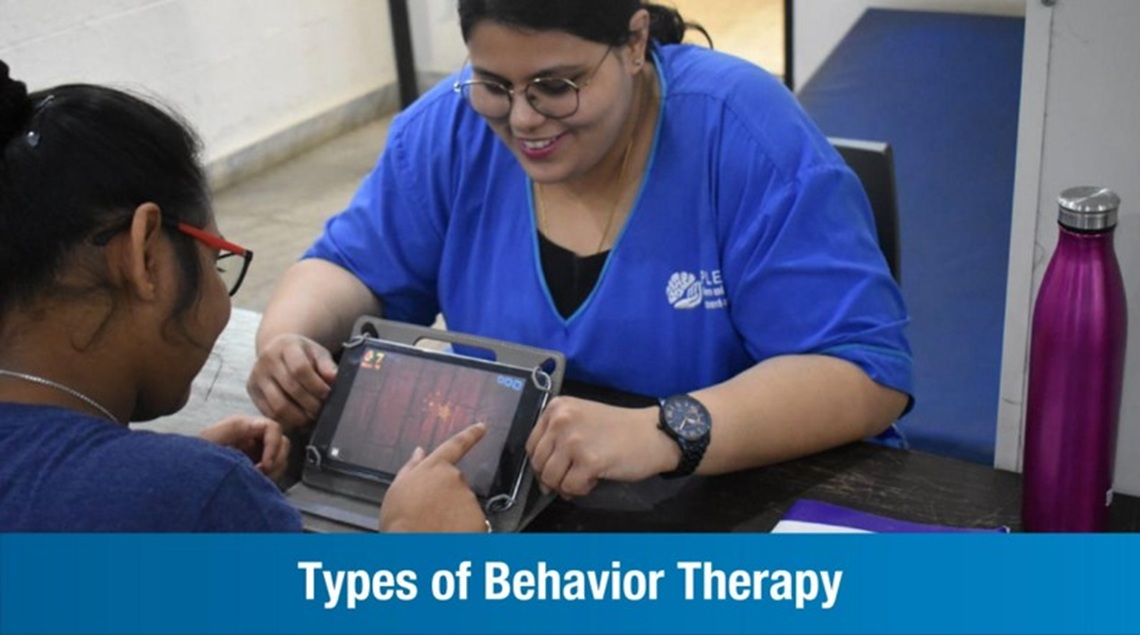
Behavioral therapy is a powerful tool for transforming harmful patterns of thinking and behavior. At Plexus, we use a range of evidence-based techniques to help individuals overcome emotional challenges, develop healthy coping skills, and lead better lives.
Types of Behavior Therapy Explained
Cognitive Behavioral Therapy (CBT)
CBT focuses on how thoughts, feelings, and behaviors influence one another. By changing negative thought patterns, patients can improve emotional regulation and decision-making. It’s highly effective for depression, anxiety, PTSD, and more.
Common CBT Techniques:
- Cognitive restructuring
- Behavioral activation
- Exposure therapy
Cognitive Behavioral Play Therapy
Designed for children who struggle to express emotions verbally, this approach uses play to help them cope and communicate.
Techniques:
- Therapeutic games
- Role-playing
- Art activities
Dialectical Behavior Therapy (DBT)
Originally created for borderline personality disorder, DBT is now used for addiction, mood disorders, and trauma. It combines mindfulness and CBT techniques to build emotional resilience.
Techniques:
- Mindfulness
- Distress tolerance
- Emotional regulation
Aversion Therapy
This method helps reduce undesirable behaviors by linking them with negative experiences. Commonly used in addiction treatment.
Techniques:
- Negative conditioning
- Covert sensitization
Systematic Desensitization
Used to treat phobias and anxiety, this method combines relaxation training with gradual exposure to feared situations.
Techniques:
- Fear hierarchy creation
- Relaxation techniques
- Controlled exposure
Rational Emotive Behavior Therapy (REBT)
REBT challenges irrational beliefs and replaces them with rational ones to improve behavior and emotional well-being.
Techniques:
- Disputation
- Cognitive restructuring
- Behavioral practice
How to Choose the Right Behavior Therapy for You
Behavioral therapy is highly customizable. Here are some additional methods we offer at Plexus to suit specific needs:
Mindfulness-Based Therapy
Helps individuals stay grounded in the present and manage emotions more calmly.
Techniques:
- Breathing exercises
- Body scan
- Mindful meditation
Exposure Therapy
Effective for treating PTSD, phobias, and anxiety disorders. It gradually helps patients face fears.
Techniques:
- In vivo exposure
- Imaginal exposure
- Interoceptive exposure
Contingency Management
Motivates positive behaviors through structured reward systems.
Techniques:
- Positive reinforcement
- Behavioral contracts
Biofeedback
Teaches control over physiological processes to reduce stress and pain.
Techniques:
- Monitoring heart rate, tension
- Relaxation and visualization training
How Plexus Delivers Personalized Behavioral Therapy
At Plexus, our team of expert therapists crafts individualized treatment plans based on the patient’s age, symptoms, and condition. We support patients managing:
- Depression
- Anxiety
- Autism
- PTSD
- ADHD
- Bipolar disorder
- Eating disorders
- OCD
- Substance abuse
- Social anxiety and phobias
We use play-based therapy for children, mindfulness for anxiety, CBT for depression, and advanced techniques for complex cases. Every therapy journey is monitored closely and adjusted as progress unfolds.
Want to explore behavioral therapy options tailored for you or a loved one?
📞 WhatsApp us at +91 89048 42087
📍 Hyderabad: +91 78159 64668 | 📍 Bangalore: +91 82299 99888
FAQ
What is Behavioral Therapy?
Behavioral therapy focuses on changing harmful behaviors through conditioning techniques. It helps treat anxiety, depression, phobias, and behavioral problems in children and adults.
What is Behavioral Therapy for toddlers?
It uses play, positive reinforcement, and structured routines to help manage tantrums, anxiety, and social difficulties while encouraging healthy communication and emotional control.
What are the different types of Behavioral Therapy?
CBT, DBT, Aversion Therapy, Systematic Desensitization, and REBT are some widely used behavioral therapies, each targeting specific conditions or behavior patterns.
What happens in Behavioral Therapy?
Therapists help individuals identify negative behaviors, set behavior goals, and apply techniques like reinforcement or exposure to build healthier patterns.
How is CBT different from DBT?
CBT focuses on changing thought and behavior patterns, while DBT incorporates mindfulness and emotional regulation for those dealing with intense emotions or trauma.
Who benefits from behavioral therapy?
It benefits individuals with depression, anxiety, autism, PTSD, OCD, addiction, and more, including both children and adults.
Is behavior therapy effective for children?
Yes, especially when adapted through play and reinforcement. It helps with ADHD, autism, anxiety, and behavioral challenges.










